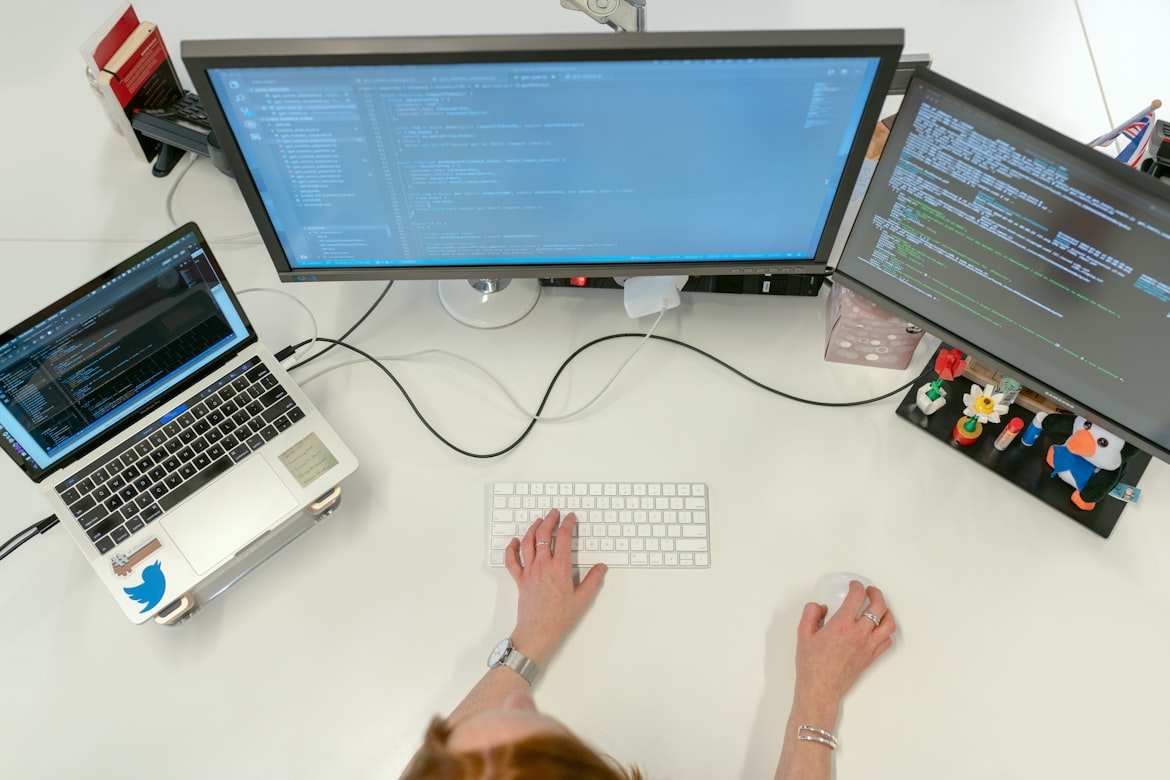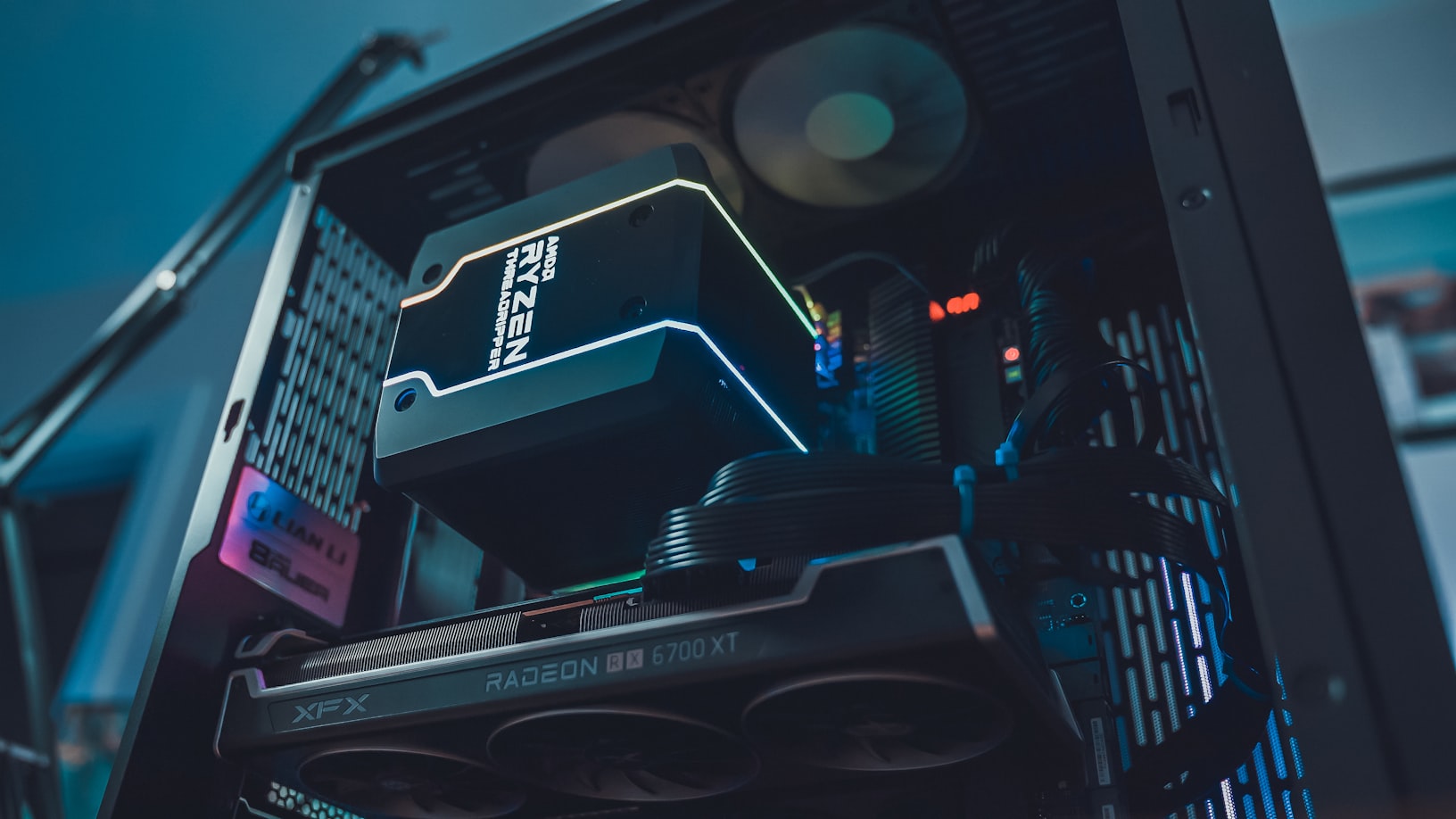Computing at the Edge: Empowering the Internet of Things
The digital landscape is undergoing a profound transformation, marked by the surge in connected devices and the proliferation of the Internet of Things (IoT). At the forefront of this revolution is edge computing, a paradigm that brings computing power closer to the data source, unlocking unprecedented efficiency and responsiveness. This article delves into the realm of edge computing, exploring its role in powering the Internet of Things and the transformative impact it holds in reshaping our digital future.
Unveiling the Edge Computing Landscape
The Essence of Edge Computing
Edge computing is a distributed computing paradigm that shifts computational processing and storage closer to the data source or “edge” of the network. Unlike traditional cloud computing, where data is sent to centralized servers for processing, edge computing allows data to be processed locally on devices or edge servers. This proximity to the data source reduces latency, enhances real-time processing, and alleviates the burden on bandwidth.
Computing at the Edge: A Game-Changing Paradigm
At its core, edge computing is a response to the evolving demands of our digital ecosystem. The surge in IoT devices, which include everything from smart thermostats and wearables to industrial sensors, generates massive amounts of data. Edge computing addresses the challenges associated with processing and managing this data by distributing the workload across a network of edge devices, optimizing resource utilization and improving overall system performance.
The Convergence of Edge Computing and IoT
The IoT Explosion
The Internet of Things represents a network of interconnected devices that communicate and share data to perform various tasks. From smart homes and cities to industrial processes and healthcare systems, IoT has permeated every facet of our lives. However, the sheer volume of data generated by these devices poses challenges in terms of processing, storage, and responsiveness.
Computing Synergy: Edge and IoT
Edge computing emerges as the linchpin in harnessing the full potential of the IoT ecosystem. By processing data closer to the source, edge computing addresses the latency issues inherent in traditional cloud-based architectures. This computing synergy results in faster response times, improved reliability, and enhanced security for IoT applications.
Computing at the Edge: Advantages and Applications
1. Reduced Latency
Latency, the delay between data generation and its processing, is a critical factor in many IoT applications. Edge computing drastically reduces latency by enabling data processing at the edge of the network. This is particularly crucial in scenarios like autonomous vehicles, where split-second decision-making is imperative.
2. Bandwidth Optimization
Edge computing minimizes the need to transfer large volumes of raw data to centralized cloud servers. Instead, data is processed locally, and only relevant information or insights are sent to the cloud. This not only optimizes bandwidth usage but also reduces the strain on network infrastructure.
3. Improved Reliability
The distributed nature of edge computing enhances the reliability of IoT systems. In scenarios where connectivity to the cloud may be intermittent or disrupted, edge devices can continue to function autonomously. This resilience is vital in applications such as smart grids or industrial automation, where continuous operation is paramount.
4. Enhanced Security
Edge computing contributes to improved security in IoT deployments. By processing sensitive data locally, potential security risks associated with transmitting data over networks are minimized. Additionally, edge devices can implement security measures like encryption and access controls at the device level, adding an extra layer of protection.
Challenges and Considerations in Edge Computing
1. Resource Constraints
Edge devices, often constrained by factors such as size, power, and computing capabilities, pose challenges in implementing sophisticated computing tasks. Striking a balance between resource efficiency and computational requirements is a crucial consideration in edge computing.
2. Data Management
While edge computing reduces the volume of data sent to the cloud, effective data management is still a critical aspect. Edge devices must intelligently filter and process data, ensuring that only relevant information is transmitted to central servers. This requires robust algorithms and data governance strategies.
Future Trends: Edge Computing Unleashed
1. 5G Integration
The rollout of 5G networks is set to amplify the capabilities of edge computing. The high-speed, low-latency nature of 5G complements the objectives of edge computing, enabling faster and more reliable communication between devices. This integration is poised to unlock new possibilities in areas like augmented reality, smart cities, and autonomous systems.
2. Edge AI
The convergence of edge computing and artificial intelligence (AI) is a promising trend. Edge AI involves deploying machine learning models directly on edge devices, allowing them to make intelligent decisions locally. This not only reduces the need for constant connectivity but also enhances the efficiency and responsiveness of IoT applications.
Conclusion: Navigating the Edge in Computing
As we navigate the intricate landscape of digital transformation, edge computing emerges as a navigational beacon, steering us towards a more efficient and responsive future. The symbiotic relationship between edge computing …
Computing Ethically: Navigating the Complex Landscape of AI and Ethics
Artificial Intelligence (AI) is transforming the way we live, work, and interact with the world. From autonomous vehicles to personalized recommendations, AI systems are becoming increasingly integrated into our daily lives. However, as the capabilities of AI continue to advance, so do the ethical challenges surrounding its deployment. Navigating the complex landscape of AI and ethics is crucial to ensuring that this powerful technology is harnessed responsibly and for the benefit of humanity. In this articles you can learn about Computing Ethically: Navigating the Complex Landscape of AI and Ethics.
The Role of Computing in Ethical AI
Understanding Bias in AI
One of the primary ethical concerns in AI revolves around bias. AI systems are trained on vast datasets, and if these datasets contain biased information, the AI models can perpetuate and even exacerbate those biases. Recognizing the impact of biased algorithms on decision-making processes is essential to building AI systems that treat individuals fairly and avoid discriminatory outcomes.
Transparent and Explainable AI
Transparency and explainability are critical aspects of ethical AI. As AI systems become more complex, understanding how they reach specific decisions becomes challenging. The lack of transparency can lead to mistrust and hinder the responsible adoption of AI technologies. Efforts to make AI algorithms more interpretable and to provide clear explanations for their decisions are essential for building trust between AI systems and their users.
Ethical Dilemmas in AI Decision-Making
The Trolley Problem and Beyond
The Trolley Problem, a classic ethical thought experiment, poses a moral dilemma about a runaway trolley headed towards multiple people, and the decision to divert it to save a greater number at the expense of a few. In the realm of AI, similar ethical dilemmas arise when programming autonomous vehicles or deploying AI in critical decision-making scenarios. Balancing competing ethical principles and determining how AI should prioritize values is an ongoing challenge.
Accountability and Responsibility
Determining accountability for AI decisions is a complex issue. When an AI system makes a mistake or causes harm, who is responsible? Is it the developer, the organization deploying the AI, or the AI system itself? Establishing clear lines of responsibility and accountability is essential for addressing the ethical implications of AI and ensuring that appropriate measures are taken in the event of adverse outcomes.
Striking a Balance: Regulation and Innovation
The Need for Ethical Guidelines and Standards
As AI continues to advance, the development of ethical guidelines and standards becomes imperative. Governments, industry organizations, and researchers are working together to establish frameworks that guide the ethical development and deployment of AI technologies. Striking a balance between fostering innovation and safeguarding against ethical pitfalls is a delicate task, but it is crucial to ensuring the responsible evolution of AI.
International Collaboration and Governance
AI is a global phenomenon, and ethical considerations transcend national borders. International collaboration and governance mechanisms are essential to addressing ethical challenges consistently. By fostering dialogue and cooperation on a global scale, the international community can work together to establish ethical norms that guide the development and use of AI worldwide.
Educating and Empowering Stakeholders
Promoting Ethical Literacy
Education plays a pivotal role in shaping a future where AI is used ethically. From developers and policymakers to end-users, promoting ethical literacy ensures that stakeholders understand the implications of AI technologies and can actively contribute to ethical decision-making. Integrating ethical considerations into computer science and AI curricula is a step towards creating a generation of professionals who prioritize ethical principles in their work.
Inclusive Decision-Making
Ensuring diverse representation in the development and decision-making processes surrounding AI is crucial. A lack of diversity can lead to biased algorithms and technologies that do not account for the diverse needs and perspectives of the global population. Inclusive decision-making processes that involve individuals from various backgrounds contribute to the development of AI systems that are more equitable and considerate of diverse perspectives.
Conclusion: Navigating the Future of AI and Ethics
As AI continues to advance, the ethical considerations surrounding its development and deployment become increasingly complex. Computing ethically is not just a technical challenge but a societal responsibility. Striking the right balance between innovation and ethical safeguards requires collaboration, transparency, and a commitment to inclusivity.
The journey to navigate the complex landscape of AI and ethics involves continuous dialogue, iterative improvements, and a shared commitment to ensuring that AI technologies align with human values and contribute positively to society. By addressing ethical challenges head-on, we can harness the potential of AI to improve lives while minimizing the risks associated with its deployment. The future of AI and ethics depends on our collective ability to approach these challenges with diligence, empathy, and a steadfast commitment to building a technologically advanced yet ethically grounded future.…
Computing in the 5G Era: Revolutionizing Connectivity for Good
The advent of 5G era technology represents a transformative leap in the realm of connectivity, promising faster speeds, lower latency, and unprecedented connectivity capabilities. As we embrace the 5G revolution, the impact on computing is profound, unlocking new possibilities and ushering in an era of enhanced digital experiences. Let’s explore the key aspects of the 5G revolution and its implications for computing.
The 5G Promise: Speed, Latency, and Capacity
Lightning-Fast Speeds
At the core of the 5G revolution is its ability to deliver blazing-fast speeds. Compared to its predecessor, 4G, 5G offers significantly higher data transfer rates, making it possible to download large files, stream high-definition content, and engage in immersive online experiences with unparalleled speed and efficiency. This speed boost is a game-changer for applications that demand real-time responsiveness and high data throughput.
Ultra-Low Latency
Low latency is a critical factor in computing applications where instantaneous response times are essential. 5G brings ultra-low latency, reducing the time it takes for devices to communicate with each other and the network. This is particularly crucial for applications like augmented reality (AR), virtual reality (VR), and autonomous vehicles, where split-second decisions can have significant implications. The computing landscape is now empowered to support applications that require near-instantaneous responsiveness.
Edge Computing and 5G Synergy
Proximity Matters: Edge Computing Explained
Edge computing is a paradigm that involves processing data closer to the source of its generation rather than relying on centralized cloud servers. With the low-latency capabilities of 5G, edge computing becomes even more potent. Computing tasks can be performed closer to the user or device, reducing the round-trip time for data to travel between the device and the cloud. This synergy between 5G and edge computing opens doors to a range of applications, from smart cities to Internet of Things (IoT) devices.
Smart Cities and IoT Revolution
The combination of 5G and edge computing is a catalyst for the evolution of smart cities. In a smart city infrastructure, sensors, cameras, and IoT devices generate massive amounts of data that require real-time processing. 5G’s low latency enables rapid data transfer, while edge computing allows for quick local processing. This synergy enhances the efficiency of smart city applications, such as traffic management, energy optimization, and public safety.
Enhanced Mobile Experiences
5G and Mobile Computing
Mobile computing has become an integral part of our daily lives, and 5G takes it to the next level. The increased speed and lower latency offered by 5G mean that mobile devices can handle more complex computing tasks with ease. Streaming high-quality videos, participating in immersive online gaming, and running resource-intensive applications are now seamless experiences, unleashing the full potential of mobile computing.
Remote Work and Virtual Collaboration
The global shift towards remote work has been accelerated by the COVID-19 pandemic, making robust connectivity more crucial than ever. 5G facilitates seamless virtual collaboration by providing high-speed, low-latency connections. Video conferencing, collaborative document editing, and other remote work essentials benefit from the enhanced computing capabilities made possible by 5G technology.
Enabling Innovation Across Industries
Healthcare, Education, and Beyond
The 5G revolution extends its influence across diverse sectors. In healthcare, remote patient monitoring, telemedicine, and the rapid transmission of medical data are facilitated by 5G, transforming the way healthcare services are delivered. In education, virtual classrooms, augmented reality learning experiences, and remote access to educational resources become more accessible and effective with the capabilities of 5G.
Gaming and Entertainment
The gaming and entertainment industries are poised for a significant transformation with 5G. Cloud gaming, augmented reality gaming, and virtual reality experiences benefit from the high speeds and low latency, offering gamers immersive and responsive experiences. Streaming high-definition content without buffering becomes the norm, revolutionizing the way we consume entertainment.
Conclusion: The Future of Computing Unleashed
The 5G revolution is not merely an upgrade to our current connectivity capabilities; it is a catalyst for a computing revolution. As we embrace the synergy between 5G and computing, we unlock new dimensions of innovation and possibilities across industries. Edge computing, smart cities, enhanced mobile experiences, and transformative applications in healthcare and education are just the beginning.
The computing landscape is evolving, and the 5G era marks a pivotal moment in this journey. As we navigate this transformative wave of connectivity, the fusion of 5G and computing is set to redefine how we interact with technology, paving the way for a future where connectivity is not just faster but also more intelligent, responsive, and seamlessly integrated into every aspect of our lives.…
How Computers Have Revolutionized Our Lives
Using a computers has modified the way in which we reside our lives. It has opened up new prospects and alternatives within the fields of healthcare, schooling, manufacturing, and leisure. With the assistance of computer systems, we are able to now entry data rapidly and simply from wherever on the earth.
Computers are additionally getting used to boost medical analysis and remedy. Scientists are utilizing computer systems to research information and develop new medicine sooner than ever earlier than. Computers are additionally utilized in surgical procedure, making procedures faster and fewer invasive.
The schooling sector has additionally been revolutionized by computer systems. College students can now entry on-line programs from wherever on the earth, and lecturers can use computer systems to offer enhanced studying experiences. Computers have additionally made it attainable to trace pupil progress and supply quick suggestions.
In manufacturing, computer systems are used to manage manufacturing traces and enhance effectivity. This has led to elevated productiveness and lowered prices. The leisure trade has additionally been remodeled by computer systems. From video video games to films and music, computer systems are used to create immersive experiences that have been as soon as unattainable.
In conclusion, computer systems have revolutionized the way in which we reside our lives. From healthcare to schooling, manufacturing to leisure, computer systems have opened up new prospects and alternatives. As know-how continues to advance, it’s clear that the facility of computing will solely proceed to develop.…
Computer: Tremendous Impact on Modern Society
The pc is arguably probably the most influential invention of the twentieth century. It has had a profound influence on nearly all facets of contemporary life, from communication to drugs to leisure. A pc is an digital system that may carry out a spread of duties, from fundamental calculations to complicated knowledge processing to synthetic intelligence. It has revolutionized the best way we work, learns, and play.
The historical past of the pc dates again to the nineteenth century, with the event of mechanical calculators. Nevertheless, the primary digital pc, the Digital Numerical Integrator And Computer (ENIAC) have been constructed throughout World Battle II. Since then, computer systems have developed quickly, turning into smaller, quicker, and extra highly effective.
One of many key advantages of computer systems is their potential to retailer and course of giant quantities of information. This has remodeled industries resembling finance, healthcare, and analysis, making it doable to research and interpret huge portions of data. As well as, computer systems have made many duties faster, extra environment friendly, and extra correct. As an illustration, phrase processing software program has made it straightforward to write down, edit, and share paperwork, whereas computer-based design instruments have made it doable to create complicated visualizations and fashions.
The event of the web has additionally significantly expanded the attain and functionality of computer systems. Right now, thousands and thousands of individuals use the web every single day for communication, leisure, e-commerce, and analysis.
Regardless of their many advantages, computer systems additionally pose some dangers. Privateness and safety are vital issues, significantly within the digital age. Furthermore, computer systems and computer networks could also be weak to hacking or cyber assaults, which might have critical penalties.
In conclusion, computer systems have had an amazing influence on trendy society, and their affect is simply rising. As we proceed to develop new applied sciences and purposes, we should additionally pay attention to the dangers and challenges that include them. With correct care and a spotlight, nonetheless, the pc will stay a robust device for a few years.…
The Future of Computing: Exploring the Latest Developments and Advances
The world of computing is quickly advancing with new applied sciences rising each day. A few of the newest developments embody quantum computing, synthetic intelligence, and edge computing. Quantum computing has the potential to revolutionize the sector of cryptography and remedy advanced issues which might be at present unimaginable for classical computer systems. Synthetic intelligence is being built-in into numerous functions, from chatbots to self-driving vehicles. However, Edge computing allows units to course of information regionally, bettering effectivity and decreasing the necessity for cloud computing.
These applied sciences are anticipated to have a major affect on numerous industries, together with healthcare, transportation, finance, and leisure. For instance, quantum computing might help speed up drug discovery and enhance diagnostic accuracy in healthcare. Synthetic intelligence can improve transportation security and effectivity whereas decreasing driver errors.
The way forward for computing additionally includes new kind components, together with foldable units, modular units, and wearables. These units permit for extra versatility and customizable consumer experiences. Moreover, developments in supplies science and nanotechnology are paving the way in which for versatile, ultra-thin units that may be embedded into clothes and even the human physique.
As computing evolves, information privateness and safety will stay vital considerations. Improvements in cryptography and decentralized applied sciences, equivalent to blockchain, might help deal with these points, making certain that consumer information is protected.
In conclusion, the way forward for computing is among the infinite potentialities. As new applied sciences emerge, we are able to anticipate to see extra environment friendly and modern options that deal with numerous challenges confronted by society. Whether or not it’s in healthcare, transportation, or leisure, the potential for computing is limitless, and we stay up for seeing the way it will form our world within the years to return.…
Everything You Need To Know About Desktop Computers
There are more choices available when shopping for a desktop computer than ever before. With so many different hardware options, styles, colors, and brands, shopping for a desktop computer can be a little overwhelming. Use the helpful advice below to help organize your thoughts and find the best computer for your needs.
If you are going to be doing some upgrades to your desktop computer be sure to ground yourself before you begin working on your computer. A simple jolt of static electricity can be more than enough to fry your motherboard. If you do not ground yourself, you will be putting your whole system at risk.
Your next desktop computer purchase must come with a warranty. This is especially important if there are any software issues or if anything else would fail to make the computer unusable. If the contract is still good, you should be able to return it to the store to get it fixed or get one with the same model number.
When purchasing a desktop, don’t only think of your needs today, think about your future needs too. You’ll likely have this desktop for multiple years, so if you’re thinking about getting into photography or video work, you’ll want to get a computer to handle your future work. It’s more of an investment upfront, but it will save you from buying another computer too soon after this purchase.
For the best deal when buying a new desktop computer, shop during and after back-to-school time or just before Christmas. These are the times when computer companies offer great deals on many of their best-selling computers. Computer companies will also offer bundles of desktops and printers that can save you extra money.
When you are shopping for a new desktop computer, you cannot just walk into a store. Choose a computer and expect to be happy with the results. There are many things you need to research about computers before you make your decision. Use these desktop computer purchasing tips to find the best computer for your needs.…





